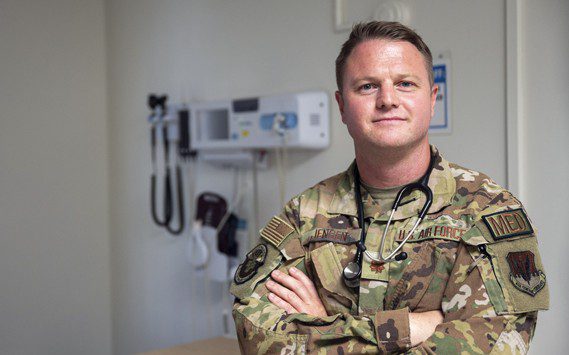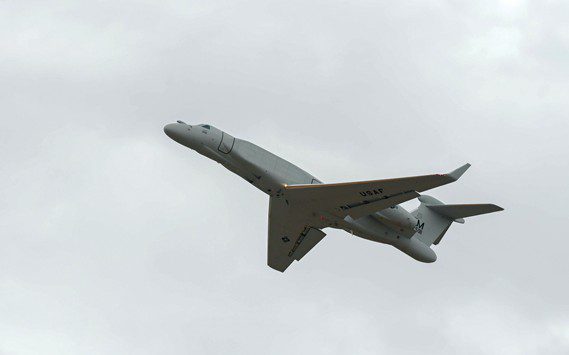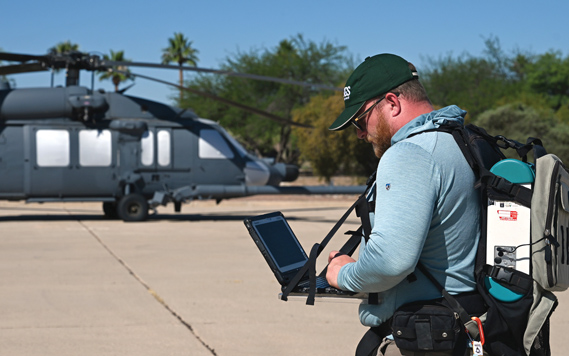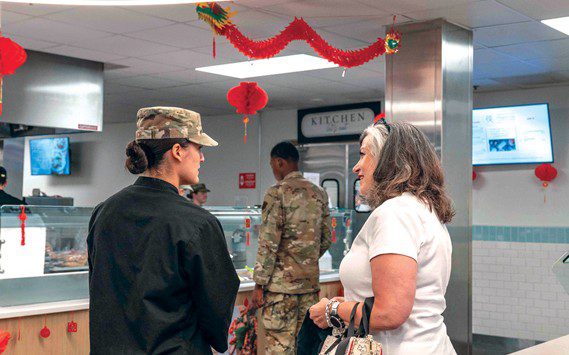DAVIS-MONTHAN AFB, Ariz. — It is in the nature of military service that at some point you will be separated from the ones who love you. Often times a permanent change of station forces spouses and significant others to be geographically separated from their family members and friends. With limited contacts and a new home what are loved ones supposed to do when the military member are not around?
It’s times like this when having a group of people who can be trusted to support and encourage loved ones is essential to alleviating the stress military families can experience.
The key spouse program is an official unit and family program overseen by commanders and is designed to enhance readiness and establish a sense of unity within the Air Force community. The program was standardized across the Air Force in March 2006 to address the needs of all military families with special emphasis on support to families across the deployment cycle.
“The key spouse program helps spouses and significant others at home while members are deployed or on an extended temporary duty assignment,” said Master Sgt. Jaime Lewis, 12th Air Force (Air Forces Southern) first sergeant. “It provides a way of getting information out to our spouses so that they have a way of staying informed with events that are going on around base so they can get involved with the unit.”
U.S. Air Force senior leadership knows the importance of the program and the tools it provides to the Air Force family.
“The key spouse program gives our entire Air Force family another way to get help when it’s really needed” said Chief of Staff of the Air Force Gen. Mark A. Welsh III in a 2014 interview with Air Force Public Affairs Agency. “Commanders and first sergeants enable and support our unbelievable key spouses in providing peer-to-peer guidance and wingman support to the families who are so vital to the success of our Air Force.”
Lewis added that the key spouse program is meant to help lighten some of the stress of taking care of family members while service members are not around.
“When you deploy, you have so many things to worry about like personal safety, the mission, and your family back home that you shouldn’t need to worry about things that happen around the house,” said Lewis. “By taking some of the day-to-day stress off of our member’s families we are making it easier for them to focus on their relationships.”
The program recognizes everyone on the unit’s team — commander, key spouse mentor, first sergeant, key spouse and the Airmen and family readiness center — impacts the unit’s culture and contributes to its ability to accomplish the mission at home and abroad.
“The program helps provide a network so that they feel included in the unit,” said Lewis. “I think that it’s important for everyone to know what the key spouse program can provide, such as sound advice and recommendations that can help families make informed decisions concerning their lives and service related challenges.”
The key spouse program helps provide guidance and support in these areas:
– Increase awareness of installation/community resources
– Identify and help resolve issues at lowest levels (providing info on programs, benefits and more)
– Prepare and support families during separations
– Improve quality of life among unit families
– Enhance family resilience
– Strengthens leadership’s support team











